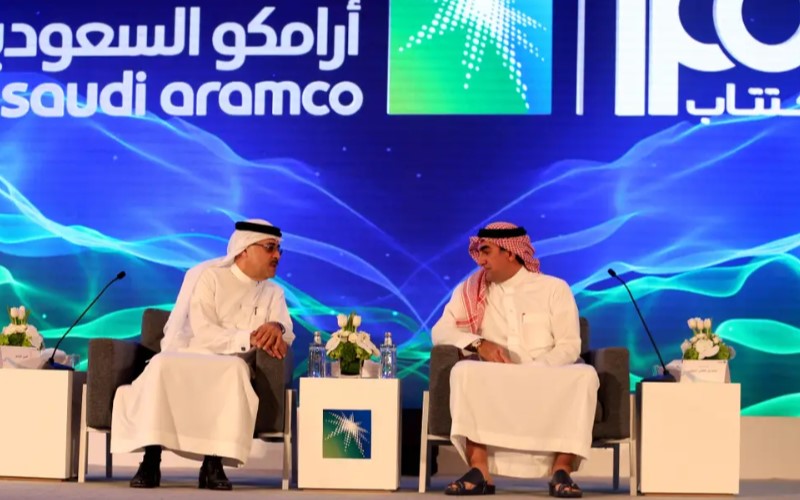
Saudi Aramco is the biggest company in the world measured by market capitalization, and the Tadawul is the venue for the biggest share sale in history.
Think on those two facts. At a valuation of $1.7 trillion, Aramco is well ahead of Apple (the previous largest quoted company) and worth about the same as the next two (Google and Amazon) combined.
Tadawul, previously middle-ranked among global stock exchanges, has managed to stage the biggest initial public offering (IPO) ever — bigger than Alibaba’s $25 billion in 2014 — and will surely jump up the tables once trading in Aramco shares starts later this week.
Neither of those events would have seemed possible even six months ago, when all the talk was of delays and postponements, let alone three years ago, when the notion of an IPO for Aramco was first suggested.
It is, as Rania Nashar, CEO of Samba Capital, said last week, a “source of pride” that the Kingdom has pulled off such an achievement in the face of a doubting global punditry and (some) investment bank advisers who seemed less than enthusiastic, despite the hundreds of millions of dollars of fees on offer.
The clinching fact is this was not even a close run thing. When the retail and institutional book-building closed finally last Thursday night, the offer was oversubscribed some 4.65 times.
This means that there was $119 billion of investment funds chasing $25.6 billion worth of shares. Did somebody say that there would be no appetite for the offer? Did somebody else say it would be impossible to raise $100 billion in an Aramco IPO?
Imagine what the level of interest in the IPO would have been without the dragging effect of an over-supplied global oil market and the intensified debate about climate change, or if the attacks on Abqaiq and Khurais last September had not taken place.
Imagine too the increased popularity of the IPO if Jamal Khashoggi had not been murdered in the Istanbul consulate. It must be conceded that event, more than any other, colored international views of the offering.
Despite all the headwinds, the IPO has been a huge success, and what is really annoying the doubters is that it was achieved without the help of the western institutions who dominate the world of global finance.
Aramco and its Saudi and regional advisers calculated that they could do it all without the help of New York and London, and were proved correct by the book-building. The repercussions of this could be long-lasting. Will emerging market companies now think again about going to the West for primary listings?
So, some congratulatory back slapping is in order in Riyadh and Dhahran, but not too much. The real measure of success of an IPO is not that the issuer can sell the shares at a big price. The people who buy those shares must also get some of the feel-good factor from the transaction.
So, what happens in the weeks and months after trading commences next week will be crucial.
That is largely outside the control of Aramco or its advisers, and is instead subject to the vagaries of the global capital markets. As the old mantra says: “Shares can go up as well as down.”
But that is what privatization of a government entity, and participation in a quoted company, is all about. Saudi citizens, expatriate residents and regional investors now have a daily barometer of their economic well-being — and the health of the Kingdom’s economy — and will benefit from the upside. As shareholders, they can make their views known on both. You might argue that those advances alone make the IPO of Saudi Aramco worthwhile.
This offering is a milestone in the history of the Kingdom, of the Middle East and of global energy markets. From this week on, we will begin to understand its true significance.





























